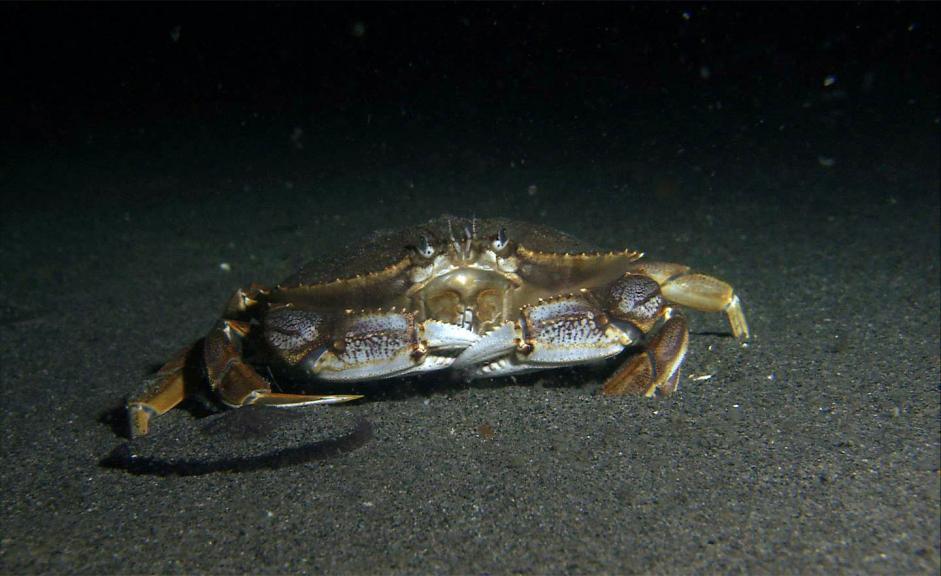SAN FRANCISCO (CN) - The state of California will roll out a sweeping set of changes to protect endangered whales and sea turtles from the dangers of crabbing gear entanglement under a settlement announced Tuesday.
To resolve a lawsuit filed by the Center for Biological Diversity, the state has agreed to shorten this year's crabbing season, limit crabbing in whale hot spots in future years, incentivize the use of rope-less crab gear, invest in technology that predicts the movements of endangered marine life and fast-track new regulations, among other measures.
The changes will put to rest claims that the state's Department of Fish and Wildlife was violating the Endangered Species Act by permitting crab traps, fishing lines, buoys and other gear that can trap and kill endangered humpback whales, blue whales and leatherback sea turtles.

"I think it's a great victory for the whales and sea turtles, and it's really a great step forward to getting us to zero entanglements," the center's attorney Kristen Monsell said by phone.
According to the center's lawsuit, rates of endangered animals getting caught in crabbing gear on the West Coast spiked between 2014 and 2016 to their highest levels since the federal government started tracking the numbers in 1982.
Entanglement can cause immediate death by drowning, starvation, bone damage, wounds that lead to fatal infections, and reduced birth rates when pregnant females get trapped. According to the center, 22 endangered animals were ensnared in Dungeness crab gear in 2016, including 19 humpback whales, two blue whales and one leatherback sea turtle.
To comply with the settlement, the state will enact a series of interim measures until it obtains an incidental take permit from the federal government, which authorizes programs that can cause incidental deaths of endangered animals.
The state will end this year's crabbing season three months early on April 15 and agree to end future crabbing seasons on April 1 in "whale hot spots" such as Monterey Bay unless certain conditions are met, Monsell said.
The interim conditions also require immediate closure of areas where endangered species get caught in crabbing gear or where large numbers of whales and sea turtles are present.
The agreement also requires that the state submit a habitat conservation plan - the first step in obtaining an incidental take permit - to the federal government by May 15, 2020.
Additionally, the settlement mandates consultation with stakeholders, including the Center for Biological Diversity and Pacific Coast Federation of Fishermen's Associations, a fishermen's trade group.
Noah Oppenheim, director of the fisherman's association, voiced support for the settlement in a statement Tuesday, saying it charts a path "back to normality" for California's crab fishery that includes built-in protections for endangered species.
“The past several years have been extraordinarily challenging for fishing families, and the actions we’re taking here are no exception," Oppenheim said. "But in the end, we’re going to emerge together with a resilient, prosperous, and protective fishery that will continue to feed California and the nation.”
Charlton Bonham, director of the state's Fish and Wildlife Department, also welcomed the settlement as advancing state goals of protecting endangered marine life while also allowing crab fishermen to work and make a living.
"As I’ve said many times, no one wants whale entanglements to happen,” Bonham said in a statement. "This agreement represents hours of intense negotiation to help ensure they don’t happen and support the resiliency of the crab fishery in the long-run."
Subscribe to Closing Arguments
Sign up for new weekly newsletter Closing Arguments to get the latest about ongoing trials, major litigation and hot cases and rulings in courthouses around the U.S. and the world.








